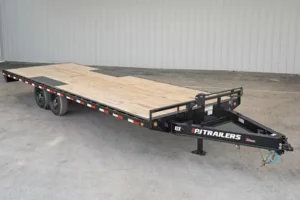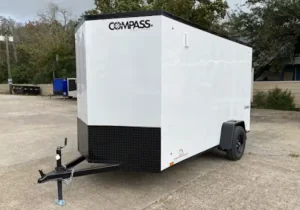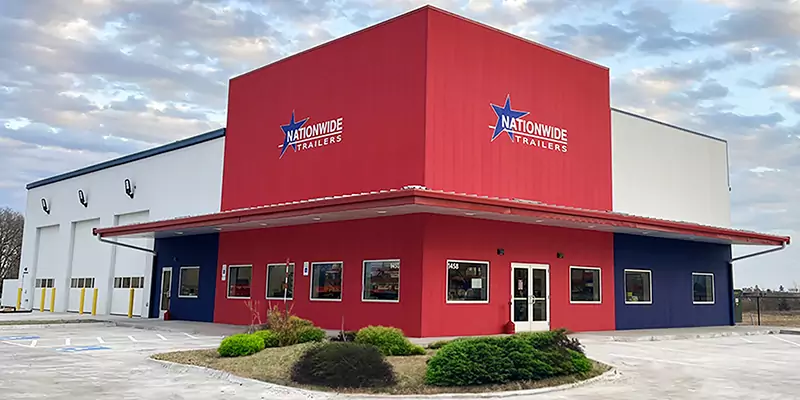Tiny homes have been a growing trend over the most recent ten years. Now, with the economy reminding many that living without the weight of bills makes the allure of going tiny that much stronger. There are many things to consider when going tiny, such as whether you can honestly handle living in such a small space, how many people are in your family and can you do it with kids, etc? Without a doubt, the biggest question that needs to be answered first is whether your tiny home will be on a foundation at a fixed location or if it will be built on a tiny home trailer to be easily transported from one spot to another. This is a question that must be answered first to determine the type of home you’ll build or buy. Let’s compare.
A Fixed Foundation Tiny Home
This option allows you to build a home that is a little larger but still very small. A home that is 12 to 16 feet wide is not possible on wheels but on a fixed foundation, it is. That said, once on a foundation, you’ll need permanent water and sewer hookups and power lines unless you’ve allowed for solar system power. You’ll be tied to the place your home rests and many jurisdictions are still not tiny home friendly. Many subdivisions have restrictions that even a tiny home must be at least 400-sq-ft. You’ll be saddled with the costs of building, heating, cooling, and installing septic or sewer for that home. This might make owning a tiny home more cost-prohibitive for many people. When you are in a fixed location, you are at the mercy of the weather in that location, unable to simply drive to a better spot. In the winter, you’ll need to determine how you’ll heat your home. In the heat of summer, you’ll spend money on cooling.
A Portable Tiny Home
These are referred to as Tiny Homes on Wheels, or THOWs. These are built on a tiny home trailer frame and many people build their own. They tend to be heavier than a traditional camper, as well as higher. They are not designed to be on the road constantly, though they can easily be moved from one location to another, making them a more flexible tiny home option for many people. They should not be confused with a traditional RV camper. A camper is typically made on a lightweight aluminum frame and has very little insulation. This makes heating and cooling more difficult. A tiny home is built with sturdier framing, well-insulated as a traditional home would be, and looks more like a traditional home. Many THOWs have a second story loft-style sleeping area that saves floor space below and with a loft at each end, there is room for children to sleep as well. Newer THOWs are now designed with main floor bedrooms and slide-outs that can expand floor space when parked. A THOW is completely portable using a trailer designed for tiny homes, but with one caveat: they do not have holding tanks, which means that if you want water, you’ll need to be hooked to a water source and a sewer line. While this is a minor drawback for some, it is an acceptable sacrifice for many who find the portability to be paramount. Tiny house villages are popping up all around the country, offering the zoning and full hook-ups for tiny homes. Many come complete with your own yard space. When the weather begins to get too cold, you simply pull up stakes and tow your tiny home to a more southerly location that can offer you similar benefits along with warm weather. When hurricane season arrives, you can do the same; just tow it somewhere else.
Your Goals
This is ultimately what dictates your choice. If the road calls to you and you love the idea of exploring the country by living in different places every few months, then the THOW lifestyle may potentially be for you. One option simply gives you more options but there are some trade-offs with either style of tiny home you choose. Your life goals are what is of primary importance. You should also spend some time in a tiny home before making the move and committing to one full-time. Try an Airbnb weekend rental or a week’s vacation in one to see if you can handle the adaptation to the small space.




